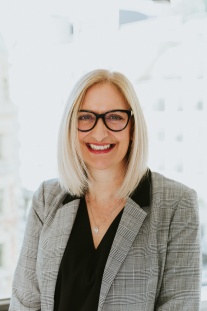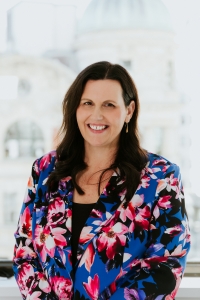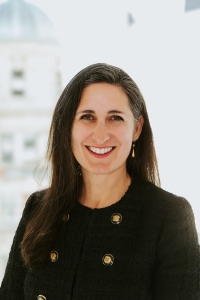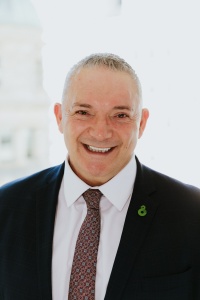Search
Showing 10 of 521 results for group registration
-
Register for the China Mayoral Forum education session
The forum theme is sustainable economies, and is an opportunity to strengthen relationships with regions of both countries. Fifteen mayors and vice-mayors from across China will attend alongside 33 mayors from across New Zealand, including smaller regional centres.
Following introductory presentations by Sir Richard Taylor (WETA Group) and Maggie Zhou (Alibaba), the forum will discuss opportunities for trade, investment, education and developing mutually beneficial partnerships.
The forum is being organised by Local Government New Zealand (LGNZ) and Wellington City Council, with support from ENZ.
LGNZ President Dave Cull says the forum is an excellent opportunity to grow relationships with New Zealand’s largest trading partner.
“There is much to be gained for our communities in developing a greater understanding and appreciation of how China operates,” said Mr Cull.
“Face-to-face meetings provide the opportunity for the representatives of our cities, districts and regions to engage directly and look for mutually-beneficial economic development opportunities.”
Sarah Gauthier, ENZ Regional Project Manager, said the education break-out session would be particularly relevant.
“This will be an engaging panel discussion touching on key ideas and interactions with China on education, followed by a chance to engage with some of the Chinese representatives,” said Sarah.
“We encourage education institutions, regional education organisations and other service providers to attend.”
Registration is free but spaces are limited. To register click here.
For more information, contact Sarah Gauthier: sarah.gauthier@enz.govt.nz
-
Thank you to NZIEC KI TUA 2024 Partners
This year’s conference was attended by 449 delegates and saw 31 sessions delivered over two days by 96 speakers, including expert panellists.
It was a pleasure to have India as our Country of Honour and the support of the High Commissioner of India to New Zealand, Her Excellency Ms. Neeta Bhushan and the High Commission of India.
To our NZIEC KI TUA 2024 partners; CANIE: Climate Action Network for International Educators, Edified, Education USA, ETS TOEFL, Flywire, Hiremaster, Host Families NZ, ICEF, IDP Education Ltd and IELTS Official, Immigration New Zealand and NZQA, Pearson, Streamliner Productions, Studentsafe (Allianz Partners New Zealand), The PIE, ByteEd, Chasing Time English, JIX Reality and Pipi Learning, Touchprint, Te Kunenga ki Pūrehuroa Massey University and Te Herenga Waka Victoria University of Wellington - thank you for your support.
ENZ Manager, Global Events and Agents, Janine Huxford says, 'We are so appreciative for the fantastic support from our suppliers and partners who went above and beyond to help us achieve our vision.”
“The conference wouldn't have been possible without you" Janine added.


The High Commission of India provided the entertainment for the gala dinner, with the Natraj Dance Company and Shivam dance company dance groups delivering dazzling performances to delegates.

To highlight the country of honour’s unique culture, henna artist Saburi Kesharwani adorned delegates with henna tattoos in the Experience Garden.
There were many other engaging activations in our Experience Garden, which was a place delegates could do just that – engage, connect, and experience.


Education USA helped attendees uncover their inner superhero. Teacher Tapahia Heke is New Zealand’s only ‘superhero reader’ and was at the conference to help delegates find their superhero alter-ego – right down to the outfit. Graphic designer and animation professional Pita Mei brought the readings to life, providing delegates with a personalised superhero illustration to take home.


Delicious refreshments were key in the experience garden. Delegates enjoyed locally made ICEF-cream provided by ICEF and barista-made coffee from Student Safe.

Thanks to IDP Education Ltd there was a dedicated breakout space for conference attendees. The IDP IELTS lounge was a space to network, learn about the latest international education insights and catch up on their emails.

Thanks to Touchprint, who created the ‘Touchprint School Yard’, a space for the school sector delegates to connect and share.

The Pearson photography headshots activation was a hit, with just under 100 photos taken by local professional photographer Rebecca McMillan.

Delegates got the opportunity to try out some of the cutting-edge technology that some of our New Zealand EdTech companies offer. Pictured here is Dr Anatole Bogatski, Executive Director of QTI trying out the mixed reality prototype that ENZ is testing as part of its innovation and growth programme. Next to him is JIX Founder Sakthi Ranganathan trying out the tool that he has helped develop. Other New Zealand EdTechs also found in the Experience Garden included Pipi Learning, ByteEd and Chasing Time English.

Much appreciation goes to our partner Flywire as the Education New Zealand Manapou ki te Ao Tāmaki Makaurau Auckland office now has a new piece of artwork based on insights from attendees for their office wall.
NZIEC KI TUA 2024 was not just about nurturing the relationships within our sector. Thanks to our conference partner Edified, it was about nurturing our whenua (land) too! In our commitment to sustainability; for every delegate registration, Edified planted a native tree, fostering a greener future for generations to come.
449 native trees were planted over the weekend after conference.

We’re grateful for the local hāpu, iwi and community who got stuck in and helped with the planting. Part of the team was international student Momone Akiyoshi, who’s from Japan and is currently studying at Paraparaumu College. Her host sister Marion Daste (left) and host mum Jo Picot (right) brought her along because they thought it would be nice for Momone to be part of regenerating the land and having the opportunity of planting native trees while in New Zealand.
Thanks to all our 2024 partners in making this year’s conference a great one!
-
Executive team
Amanda Malu | Chief Executive
 Amanda Malu is the Chief Executive of Education New Zealand Manapou ki te Ao (ENZ).
Amanda Malu is the Chief Executive of Education New Zealand Manapou ki te Ao (ENZ).Amanda has deep experience in the public sector, education, and marketing, as well as experience across borders and with international education through her past roles. She has held senior leadership roles across education and health sectors.
Prior to ENZ, she was Deputy Chief Executive Service Delivery at ACC, and formerly Chief Executive at Whānau Āwhina Plunket, leading the organisation through extensive change over five years in the role. She has also held senior marketing and communication roles, including at the Tertiary Education Commission and in the vocational education sector.
As ENZ’s Chief Executive, Amanda is responsible for leading ENZ in promoting Aotearoa New Zealand as a study destination and helping our country realise the social, cultural, and economic benefits of international education.
Julia Wootton | Group General Manager, Strategy, Capability & Performance
 Julia has 25 years of experience in the New Zealand public sector, where she has held senior leadership roles accountable for planning and performance, enabling services, service delivery operations, transformation programmes, and regulators.
Julia has 25 years of experience in the New Zealand public sector, where she has held senior leadership roles accountable for planning and performance, enabling services, service delivery operations, transformation programmes, and regulators. Julia leads the ENZ teams responsible for strategy, governance, accountability and performance, business planning, people and capability, information technology, property, security, risk, data and insights, and finance.
She is passionate about using her understanding of organisational architecture and effective enterprise systems to create settings that enable people to thrive and contribute at their best. Her aim is to ensure ENZ has the right direction, capabilities, and enablers to maximise the impact of its activities and support the international education sector to grow and prosper.
Julia values education and continuous learning and holds a Master of Business Administration and an Executive Master of Public Administration from Te Herenga Waka – Victoria University of Wellington.
Sahinde Pala l Group General Manager, International & Sector Engagement
 Sahinde joined ENZ in 2016 after 18 years working for a multinational group of English language schools. With a career dedicated to international education, she brought extensive private sector experience in international marketing, stakeholder engagement and student experience delivery to the organisation.
Sahinde joined ENZ in 2016 after 18 years working for a multinational group of English language schools. With a career dedicated to international education, she brought extensive private sector experience in international marketing, stakeholder engagement and student experience delivery to the organisation.Sahinde has held a number of roles at ENZ working with education providers, government stakeholders, regional groups, peak bodies, students’ associations and community groups. She was heavily involved in developing the International Student Wellbeing Strategy.
Sahinde is based in our Auckland office and spends her time outside of work standing on the sidelines of sports fields supporting her young boys.
Anna Gestro | Group General Manager, International Marketing, Brand & Scholarships
 Anna leads the strategy, delivery, and teams behind ENZ's global marketing, brand, and scholarships — focused on connecting students with opportunity and Aotearoa with the world. Her focus is on elevating Aotearoa's global brand, deepening student connection, and driving growth through impactful storytelling and strategic partnerships.
Anna leads the strategy, delivery, and teams behind ENZ's global marketing, brand, and scholarships — focused on connecting students with opportunity and Aotearoa with the world. Her focus is on elevating Aotearoa's global brand, deepening student connection, and driving growth through impactful storytelling and strategic partnerships.Her career spans over 20 years across marketing, strategy, and executive leadership in both public and private sectors. She has worked across global brand and commercial programmes for organisations such as Lion, Fonterra, and New Zealand Cricket — blending deep consumer insight with strategic delivery.
Anna’s experience also includes international roles in Singapore and New York, where she’s helped promote New Zealand’s innovation, values, and capability globally.
Anna is also a board member of Basketball New Zealand, where she brings her commercial and strategic expertise to the development of sport. Across both sport and education, she sees a common thread: the power to unlock opportunity, level the playing field, and connect people across borders and backgrounds.
Ed Tuari l Chief Advisor Māori
 Ed is of Ngāti Porou and Te Whanau-ā-Apanui descent, and joined Education New Zealand Manapou ki te Ao in 2017. He previously worked in Dubai, United Arab Emirates for 18 years.
Ed is of Ngāti Porou and Te Whanau-ā-Apanui descent, and joined Education New Zealand Manapou ki te Ao in 2017. He previously worked in Dubai, United Arab Emirates for 18 years.As Manukura, Ed develops and leads the Rautaki Māori (ENZ’s Māori Strategy), provides advice regarding cultural capability, and brings a Māori perspective to policy and project development.
A former primary school teacher for 10 years, Ed has experience in providing Māori bi-lingual and immersion learning within the New Zealand primary school sector. He also co-wrote and co-presented the first Māori language television programme for preschoolers for mainstream New Zealand television.
In 2012, Ed was named New Zealander of the Year in the United Arab Emirates by AIG, for his cultural and professional contribution to the New Zealand community in Dubai and throughout the Middle East. Recently Ed was the Kaipupuri-Cultural Advisor of the Aotearoa New Zealand Pavilion, entrusted with Kaitiaki o te mouri for Expo 2020 Dubai.
A graduate of Auckland University of Technology, Ed holds a degree in Māori Development, Language and Culture and a Diploma in Teaching.
Ed enjoys engaging in indigenous development initiatives, working towards the preservation and maintenance of tribal culture and heritage, and indigenous networking.
-
School support on the way
Mary Camp, ENZ’s Business Development Manager dedicated to the schools sector, says schools can expect to see these activities rolling out over the coming months.
Mary is also chair of the Schools Sector Reference Group. She says that “with 596 schools hosting international students, and no peak body, consultation is a challenge.
“So we have set up a Schools Sector Reference Group, to create a channel for consultation with the sector.”
The group provides advice and guidance to ENZ on initiatives planned for the schools sector. The group includes representatives from eight regions. It will meet 3-4 times each year.
ENZ’s schools sector initiatives include:
-
An exemplar school website showing best practice to attract international students
-
Marketing material focussing on New Zealand’s competitive edge, with room for regions and schools to insert their own details
-
A website review service to help schools maximise the results from their websites (conditions will apply)
-
Case studies of schools showing good practice in export education.
Further initiatives off the block will include:
-
A professional development programme for International Directors and/or Principals
-
A marketing self-review tool
-
Research into primary and intermediates schools’ decline in numbers.
-
-
New resource on the Brand Lab
"Peking University’s New Zealand Centre (which involves several of our universities and government agencies) runs this undergraduate course which students take to earn foreign language credits (and because of their interest in New Zealand, of course). Enrolments have grown year-on-year, with 75 students now taking this class.
In the past, I have delivered a more academic lecture on New Zealand’s education system, including on policies and reform. And in the past, this has been met with glazed eyes. So in a break with tradition I decided to make the session more interactive and incorporate some of the tools we now have at our disposal. I gave an informal “why study in New Zealand” presentation, then moved on to showing the New Zealand Story and New Zealand Education Story.
We then broke into small groups (just like we do in New Zealand classrooms and tutorials), and students worked on the task I had set: to discuss and agree on “what three words best exemplify what is ‘special’ about New Zealand education.”
And I was blown away by the responses. Each group came up to write its words on the blackboard, and common themes included innovation, openness, diversity, inspiring, and opportunity. Our messaging is clearly resonating.
After then watching some of ENZ’s Gibson Group-produced Dragons in a Distant Land alumni episode (and remembering far too late that I have a cameo in it), I asked each group to explain its three words. And again – I was blown away. The willingness of these students to contribute their thoughts and to ask questions – in English, in public - with a second member from one group even volunteering additional thoughts – really impressed me. The course coordinators were also very pleasantly surprised.
As products of New Zealand’s education system, volunteering our thoughts, asking questions and speaking in public come naturally to us. This isn’t so in every education system.
Almost best of all, the course was that day being audited by a very senior Peking University Professor. She stood up at the end and said, “I did my PhD in economics at the University of Chicago. After today, I want my grandchild to go and study in NZ”.
I always give the class my email address, and as of right now have received five enquiries from these students at China’s top-ranked university. I have also had to courier additional blocks of Whittaker’s chocolate. Each of the nine groups deserved a prize.
A Chinese subtitled version of the New Zealand Education Story is now available on the Brand Lab, so I encourage you to use this when next in China or hosting Chinese visitors.”
-
Rugby + English a winning combo
The boys are being hosted by Pathways College at Waikato University and the Waikato Rugby Union.
Hot on the heels of this group are 10 female high school rugby Sevens players who will arrive in Auckland on 6 August. This group is being hosted by New Zealand Language Centres and the Auckland Rugby Union, with the support of the Japanese Ministry of Sport and Education (MEXT) and the Japanese Rugby Union.
The visits are taking place under the ‘Game On English’ edu-sport programme jointly launched by Prime Minister John Key and Japanese Prime Minister Shinzo Abe during Mr Abe’s visit to New Zealand in July 2014. They build on the success of the programme pilot that saw two teams visit Dunedin and Auckland respectively during the 2014 winter season.
The programme was developed by Education New Zealand (ENZ) in partnership with the Ministry of Foreign Affairs and Trade in response to the Japanese government’s goal to improve the English language skills and increase the sporting capacity of Japan’s young people in the lead up to Japan’s hosting of the 2019 Rugby World Cup and 2020 Olympics.
The programme is now administered by English New Zealand, who have expanded it to include five provincial rugby union academies and selected premium English language providers based in locations throughout the country: Auckland, Hamilton, Mount Maunganui, Christchurch and Dunedin.
The programme includes daily English language classes and rugby training, and the students live with homestay families where they experience New Zealand life and culture and immersion in an English language speaking environment.
Ewen Mackenzie-Bowie, Chairman of English New Zealand points out that Game On English is about more than playing sport; “The programme provides a life-changing experience for young people that builds self-confidence, leadership and teamwork and helps them develop the necessary skills to reach their sporting and learning potential.”
With financial support from ENZ, English New Zealand has appointed sports management company Essentially Group as the Game On English programme co-ordinator in Japan. Essentially Group’s role is to promote the programme to interested parties in Japan and co-ordinate activity with the providers in New Zealand.
The Game On English programme is being expanded into other sports where New Zealand can provide international students a world class experience. In early 2015 a successful rowing pilot was developed between Otago University and the Otago University Rowing club who hosted four athletes and a coach from Kyoto University.
If you are interested in knowing more about the programme, please contact admin@englishnewzealand.co.nz
-
ICL Education Group wins at 2016 Export New Zealand awards
ICL won the award for Endace Services Exporter of the Year 2016. This award recognises excellence in building extraordinary and sustainable export growth, working in the areas of ICT, tourism, education and consultancy services.
“I would like to salute the dedication and focus of the 100 ICL staff who have achieved this award, and of whom we are immensely proud. We are particularly honoured that the judges have highlighted the ethics and professionalism of our Group, principles which we believe ultimately underwrite our success,” says Ewen Mackenzie-Bowie, Chairman of ICL Education Group.
The award is one of seven categories, which have been held annually since 2009 to inspire New Zealand exporters to expand their businesses and grow internationally.
ICL Education Group includes ICL Graduate Business School, Auckland English Academy, Bridge International College and New Horizon College.
The judges were impressed with ICL’s approach to marketing, with a broad spread of target markets, and the introduction of new courses to meet identified demand, particularly at a post-graduate level.
It was clearly evident that ICL is a strong contributor to New Zealand’s success in continuing to attract fee-paying international students. ICL’s research culture and policy of employing and retaining highly qualified staff was also seen as a positive factor.
-
Where education meets technology, cyber-romance blooms
Among the attendees was a group of New Zealand edtech companies and educators. Representatives of Massey University and Linewize joined the New Zealand Technology Industry Association (NZTech) Chief Executive, Graeme Muller, and Education New Zealand (ENZ) Business Development Manager, Adele Bryant, at the event.
“NZTech formed the EdtechNZ Association last year so it was fantastic to offer members the chance to scope one of the biggest edtech events in the world,” said Graeme.
Altogether about 20 New Zealand delegates were in Denver which provided the opportunity to learn about global edtech trends, meet prospective partners and scope the possibility of exhibiting at the associated Expo usauin the future.
“The conference featured an amazing array of professional learning and collaborative networking opportunities while the expo hall showcased a wide range of edtech tools and solutions,” said Adele.
Attendees could choose from more than 1,000 sessions in a variety of formats to support all learning styles.
“The passion of teachers for using edtech tools to engage, manage and extend learners was evident from the start and suggests that the future for edtech in the classroom is bright.
“A key take away was that educators were looking to spend more time engaging with students and less on developing their own resources, so easy-to-use and educationally sound tools which met learner needs were sought,” said Adele.
“Supplying that technology is big business. The global edtech sector is estimated to be worth over $100 billion and Kiwi companies are keen to raise their international profile and provide solutions to meet that growing global demand.”
Kiwi edtech success story Hapara (a cloud-based instructional management system for educational institutions) provided the New Zealand delegation a welcome opportunity to meet and network at a ‘Kiwi Hour’ onsite at the conference. Among the group were Auckland-based edtech companies, Kami and Booktrack as well as Core Education and Network for Learning. Representatives of the Manaiakalani Trust delivered a Visible Learning session on the programme.
The NZTech-led group also attended a breakfast session on the role of schools and edtech companies in professional learning. The group reconnected there with Karen Billings, Vice President of the Education Technology Industry Network (ETIN) of the Software Information and Industry Association (SIIA) who was a speaker at ENZ’s first edtech for export (‘et4e’) conference.
-
A school trip from Tauranga to Yantai
The group travelled with support from Education New Zealand’s (ENZ) New Zealand China Sister Schools Fund.
Deputy Principal, Kathy Colville, who accompanied the students along with International Student Coordinator, Annemieke Hart, said “very strong bonds were established”.
“Our students met many challenges,” she said, but “they rose to the occasion and took everything in their stride.”
The students attended school and stayed with local families. An exhibition of Tauranga photos was held as part of the sister city celebrations, and the group enjoyed giving their hosts an insight into Tauranga life. The group also spent a day in Shanghai.
Kathy said the students – all of whom learn Mandarin at school – were carefully chosen.
“It was an extremely difficult task but we chose some that had travelled with us [overseas before]. We knew that we could rely on these students to be great ambassadors of our school, city and country.”
There were lots of differences at school in Yantai, the principal one being the long school hours. The school day starts at 7.15am and ends at 5.30pm in China, with students then staying up till 11pm to complete homework.
“The long school hours were a bit daunting,” said Riley Bartosh.
The students also enjoyed learning calligraphy, and doing physical exercise Chinese-style – always carried out in groups.
The students said the experience had made them more independent and opened up their minds to further travel in the future.
“Now I’m more open to different cultures and how others live,” says Riley Bartosh.
“I am interested in pursuing a career that involves communication with other countries. China has opened up opportunities that would never have been available otherwise,” says Stephanie Austin.
“I’ve been on school trips to Portugal, Amsterdam and Turkey since I’ve been at this school,” says Ngawaka Ririnui. “It’s inspired me to travel more and experience how others live.”
“I am going to continue learning Mandarin at our school so that I can speak three languages – English, Maori and Mandarin,” says Te Wairere Te Moana.
Annemieke said Tauranga Intermediate School has offered biannual overseas school trips to its students since 2000. The school reinvests some of the revenue it receives from international students to fund these trips.
She said that in Term three, a group from Yantai Number two Middle School was making a reciprocal visit to Tauranga.
-
What do Kiwis think about international education?
Our sector’s successful future requires the public and other stakeholders to know about, and value, international education.
ENZ Director Student Experience & Global Citizens, Sahinde Pala, says the research shows us international education is not front of mind for most New Zealanders.
“However, when the benefits of international education were explained to the research participants, most were really onboard. They were also surprised they hadn’t heard it being talked about publicly and in the media.”
Participants responded extremely positively to the fact international students spend in their community, including to help create jobs across many sectors.
Sahinde says the research showed it is vital that communications broaden the conversation. This means sharing stories about the rich full breadth of other international education benefits New Zealanders care about now including, global citizenship, cultural diversity, tourism, and the fact education is a way to share our innovative ways of thinking, learning and living to benefit the world.
Great fresh insights into how to communicate with Kiwis
Sahinde notes this research gives us the first understanding of the ‘profiles’ of New Zealanders regarding international education – promoters, passives and detractors – and how to share communications that will increase public support.
Encouragingly, half of the NZ population are in the promoter group, with a further 47% in the passive group, and only 3% in the detractor group.
“The greatest social licence gains can be made through the ‘promoter’ group which makes up half of Kiwis. These people either know about international education or they fit a profile of having experiences or attributes that mean they are interested in New Zealand’s place in the world and cultural connectivity. The really great news is promoters will talk to others about international education if they hear it being discussed, and in a way that is meaningful to them.
“This is the task for all of us across the international education system,” she says.
The research also shows that two-thirds of New Zealanders are supportive of students coming into the country in 2021. “This is helpful to understand as we want to ensure those who have stayed and those who come this year receive the manaakitanga Think New promises them,” Sahinde says.
Putting the research findings to work and next steps
Using the insights from this research, ENZ is developing a communications toolkit, including ‘right fit’ messaging, for those in the international education system to use in their own public and stakeholder communications. This is scheduled for release in May.
The toolkit will sit alongside this research, and ENZ’s new regular The Insight Story publication, which provides international education data and insight, as social licence tools to help increase awareness and support for international education.
ENZ is also increasing its own communications to help increase awareness of what international education is, where it is going under the Recovery Plan and NZIES and ultimately, how it benefits students, New Zealand and our global relationships.
ENZ will continue research to understand perceptions and support for international education, including to look at ways of getting real time insights into public sentiment and support.
Read all about it!
The report is now on IntelliLab.

